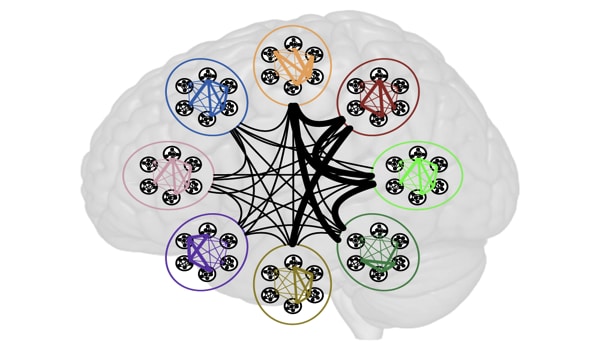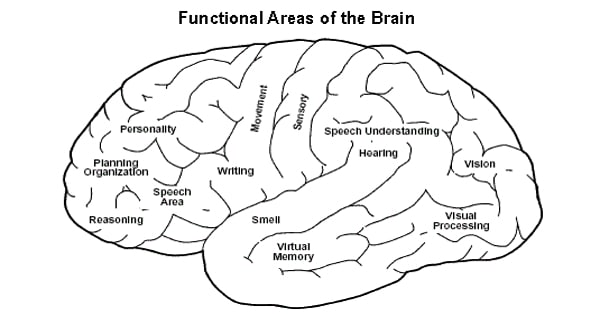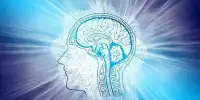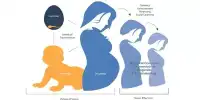Memory plays an important part in life, reflecting the past as the past and allowing for the reuse of all previous and present events, as well as ensuring continuity between what was and what was to come.
Early life experiences have an impact on the brain’s biochemical and functional development, according to a recent study by a group of neuroscientists. Its findings, which focused on alterations in mice and rats, show how learning and memory ability might differ depending on the nature of an individual’s early life experiences.
“The implications are numerous, including environmental influences on mental health, the role of education, the significance of poverty, and the impact of social settings,” says Cristina Alberini, a professor in New York University’s Center for Neural Science and the senior author of the paper, which appears in the journal Nature Communications.
“These findings also hold promise for possible therapeutic approaches,” say Alberini and Benjamin Bessieres, an NYU postdoctoral researcher and the paper’s co-lead author. “By identifying important time periods for brain development, they provide an indicator of when pharmacological, behavioral, or other types of treatments may be most useful.”
We discovered that this biological maturation is matched by and required for memory functional maturation – that is, the ability to express memory long-term. Our findings suggest that specific experiences throughout the early developmental period contribute significantly to individual variances in learning and memory capacities.
Alberini and Bessieres
In general, we know very little about the mechanisms that underpin the development of learning and memory abilities. The Nature Communications study used rats and mice to provide new light on this process by investigating the biochemical factors connected to episodic memories (those of specific events or experiences) in babies.
The scientists explored whether and how different types of experiences mature learning and memory abilities in their tests. In one experiment, infant mice and rats were placed in a confined container and subjected to a modest foot shock (a commonly used method to test memory for a context). Their memory was evaluated by putting them back in these compartments; if they hesitated, it meant they had established a recollection of previously being in the container.
Infant mice and rats were exposed to novel things in a certain spatial configuration in a different type of experience. When provided with a combination of new and old locations, mice with a memory for this event show more exploration toward a novel object location, simply because they have a natural predisposition to investigate more new object locations. This reveals a memory for the location of an object. The same memory system stores both types of experiences, context and object position.
The authors then asked two questions.

The first was: Does learning mature memory abilities?
It does, according to the findings, because both context and object location experiences developed the brain at both biological and functional levels. Overall, researchers discovered that the young mice and rats’ episodic experiences resulted in distinct biological changes, notably suggesting maturation in the hippocampus – a region crucial for episodic memory formation. They did not, however, observe the same changes in elder mice and rats.
Furthermore, they observed that with each type of learning, context, or item location, the newborn animal matured its performance and became capable of long-term memory, similar to that of an adult animal.
The second issue posed by the team was, “Does the maturation induced by one sort of experience grow the complete memory system and all of its abilities?” Is maturation selective for the type of experience the animal has had?
They discovered that the maturation induced by one type of experience (context) did not transfer to the other learning (object placement), leading them to the conclusion that the maturation of learning and memory abilities is selective for the type of experiences encountered early in life.
“Because the biological maturation changes with episodic learning no longer happened at later ages, it is obvious that the baby brain employs separate biological mechanisms to build and maintain episodic memories,” Alberini and Bessieres wrote. “We discovered that this biological maturation is matched by and required for memory functional maturation – that is, the ability to express memory long-term.”
“Our findings suggest that specific experiences throughout the early developmental period contribute significantly to individual variances in learning and memory capacities,” they write.
“While all individuals are exposed to general learning of information, people, things, time, and spaces, and hence must develop a wide range of talents and competencies processed by the hippocampus memory system, our data imply that individual history impacts the maturation of specific abilities.”
“Memory formation is critical for thinking, future learning, planning, decision-making, problem-solving, reflecting, imagining, and overall capacity to build a sense of self,” write the authors. “What infants learn and experience is critical for their later development.”















